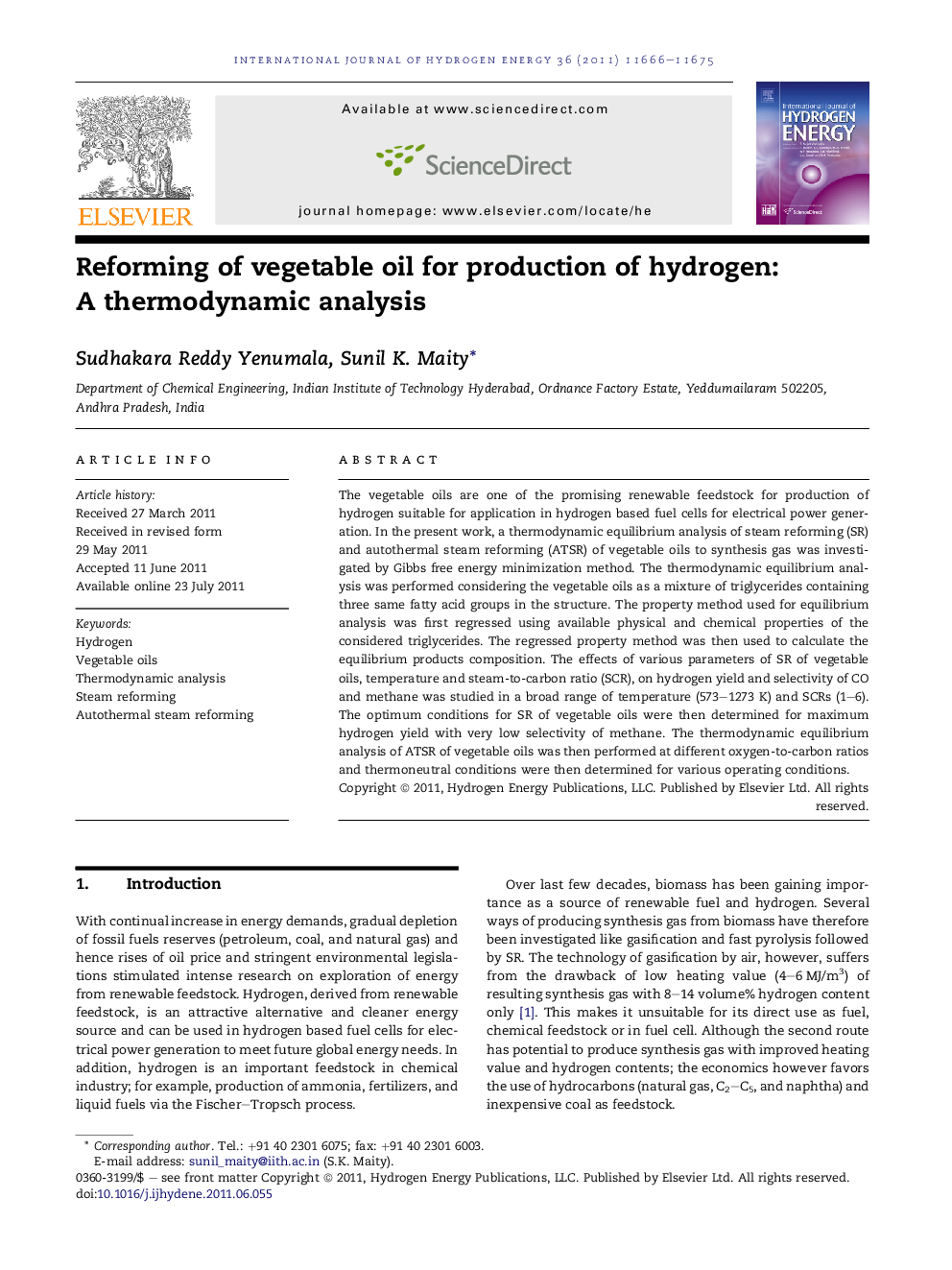| Article ID | Journal | Published Year | Pages | File Type |
|---|---|---|---|---|
| 1275855 | International Journal of Hydrogen Energy | 2011 | 10 Pages |
The vegetable oils are one of the promising renewable feedstock for production of hydrogen suitable for application in hydrogen based fuel cells for electrical power generation. In the present work, a thermodynamic equilibrium analysis of steam reforming (SR) and autothermal steam reforming (ATSR) of vegetable oils to synthesis gas was investigated by Gibbs free energy minimization method. The thermodynamic equilibrium analysis was performed considering the vegetable oils as a mixture of triglycerides containing three same fatty acid groups in the structure. The property method used for equilibrium analysis was first regressed using available physical and chemical properties of the considered triglycerides. The regressed property method was then used to calculate the equilibrium products composition. The effects of various parameters of SR of vegetable oils, temperature and steam-to-carbon ratio (SCR), on hydrogen yield and selectivity of CO and methane was studied in a broad range of temperature (573–1273 K) and SCRs (1–6). The optimum conditions for SR of vegetable oils were then determined for maximum hydrogen yield with very low selectivity of methane. The thermodynamic equilibrium analysis of ATSR of vegetable oils was then performed at different oxygen-to-carbon ratios and thermoneutral conditions were then determined for various operating conditions.
► Thermodynamic analysis of steam and autothermal reforming of vegetable oils. ► Vegetable oils are considered as mixture of triglycerides containing three same fatty acids. ► Regression of property method was done using physical properties of the triglycerides. ► Optimum reforming condition is 875–925 K and steam-to-carbon ratio of 5–6. ► OCR of 0.53 requires for thermoneutral condition at 900 K and SCR of 3.
